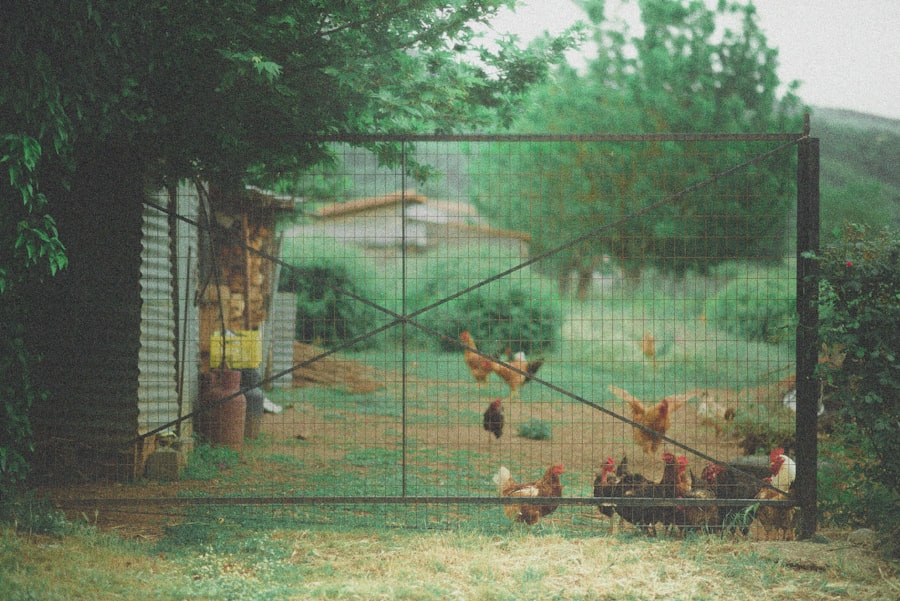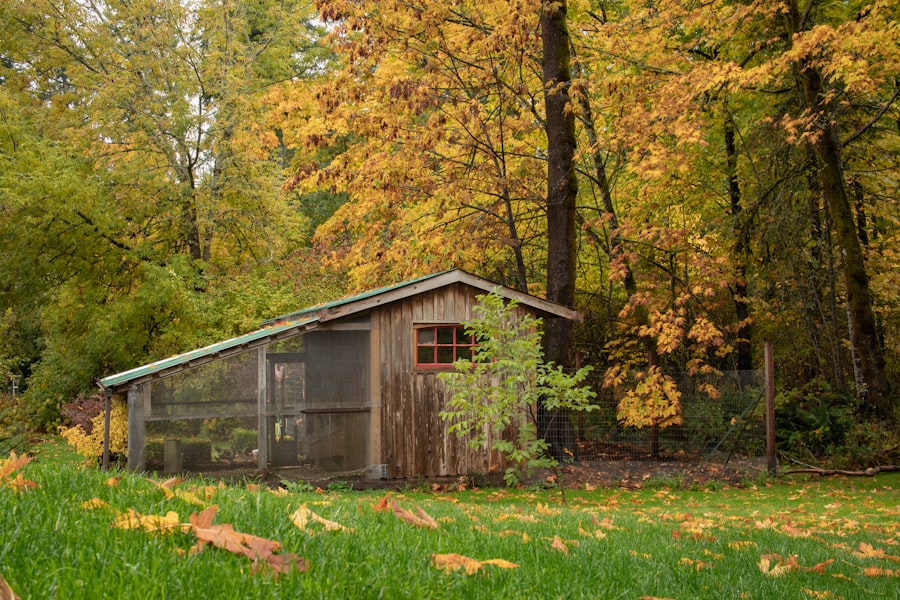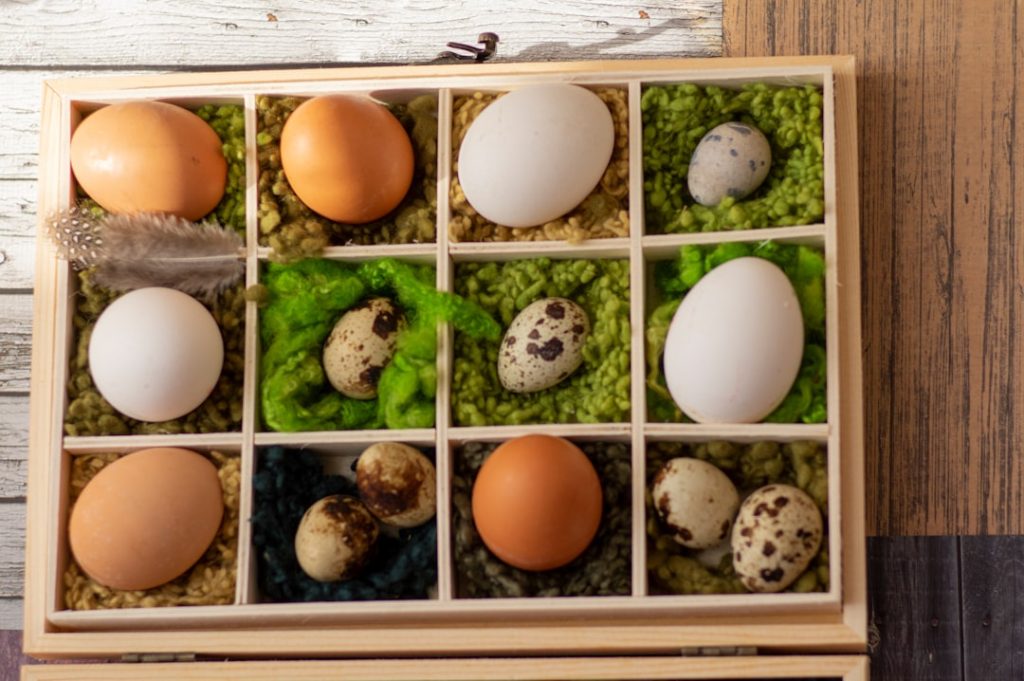Starting a backyard chicken flock involves several initial setup costs. A primary expense is the chicken coop or housing structure, which can range from a simple DIY project to a more elaborate pre-made structure. The cost depends on the budget and the number of chickens planned.
Essential equipment includes feeders, waterers, and nesting boxes. Fencing is necessary to create a safe outdoor space for the chickens. In colder climates, heat lamps or other heating sources may be required.
The purchase of chickens is another significant cost, whether opting for day-old chicks or started pullets. Basic supplies such as feed and bedding are also necessary initial investments. Some areas may require permits or licenses for keeping chickens, which should be factored into the budget.
Careful consideration and budgeting of these setup costs are crucial for successfully starting and maintaining a backyard chicken flock. This ensures that all necessary elements are in place to properly care for the new flock from the outset.
Table of Contents
Key Takeaways
- Initial setup costs for raising chickens include purchasing a coop, feeders, waterers, and heat lamps.
- Housing and coop maintenance involves regular cleaning, checking for wear and tear, and predator-proofing the coop.
- Providing fresh feed and water daily is essential for the health and productivity of the chickens.
- Regular veterinary care, including vaccinations and check-ups, is important for keeping the flock healthy.
- Bedding and litter should be changed regularly to maintain a clean and healthy living environment for the chickens.
- Egg production and consumption can help offset some of the expenses of raising chickens.
- Miscellaneous expenses may include supplements, treats, and unexpected costs for repairs or emergencies.
Housing and Coop Maintenance
Regular Cleaning and Repairs
Once you have set up your chicken coop and housing structure, it’s essential to consider the ongoing maintenance costs associated with keeping chickens. This includes regular cleaning and disinfecting of the coop, as well as repairing any wear and tear that may occur over time.
Bedding Material and Enrichment
You will also need to budget for bedding material such as straw or wood shavings, which will need to be replaced regularly to keep the coop clean and comfortable for your birds. Additionally, consider the cost of providing enrichment and entertainment for your chickens, such as purchasing toys or treats to keep them stimulated and happy, as well as providing outdoor space for them to roam and forage.
Predator-Proofing and Upgrades
It’s also crucial to budget for any potential repairs or upgrades that may be needed to keep your coop predator-proof and secure. This may include additional equipment or upgrades to ensure your chickens have a safe and secure living environment.
By carefully considering these ongoing housing and coop maintenance costs, you can ensure that your chickens have a safe and comfortable living environment.
Feed and Water

Another important ongoing expense to consider when keeping backyard chickens is the cost of feed and water. Chickens require a balanced diet to stay healthy and productive, so it’s important to budget for high-quality feed that meets their nutritional needs. This may include purchasing commercial feed from a local supplier or mixing your own feed using a variety of grains and supplements.
Additionally, you will need to budget for the cost of providing clean and fresh water for your chickens on a daily basis. It’s also important to consider the potential cost of providing additional supplements or treats for your chickens, such as calcium or grit. These supplements can help support your chickens’ overall health and egg production, so it’s important to factor them into your budget.
Additionally, if you plan to free-range your chickens, you may need to budget for the cost of providing additional forage or greens to supplement their diet. By carefully considering the ongoing cost of feed and water, you can ensure that your chickens have everything they need to stay healthy and productive.
Veterinary Care
Just like any other pet, chickens may require veterinary care from time to time, so it’s important to budget for potential medical expenses. This may include routine check-ups and vaccinations, as well as treatment for common health issues such as parasites or respiratory infections. Additionally, you may need to budget for the cost of emergency care in the event that one of your chickens becomes ill or injured.
It’s also important to consider the potential cost of preventative measures such as parasite control and biosecurity measures to keep your flock healthy. By carefully considering the potential cost of veterinary care, you can ensure that you are prepared to provide your chickens with the medical attention they may need.
Bedding and Litter
In addition to regular coop maintenance, it’s important to consider the ongoing cost of providing bedding and litter for your chickens. This may include purchasing straw or wood shavings to line the floor of the coop, as well as replacing it regularly to keep the living environment clean and comfortable for your birds. Additionally, you may need to budget for the cost of providing additional nesting material such as hay or shredded paper for your hens.
It’s also important to consider the potential cost of providing litter or bedding material in outdoor areas where your chickens roam. This may include providing mulch or sand in areas where your chickens spend time outside of the coop. By carefully considering the ongoing cost of bedding and litter, you can ensure that your chickens have a clean and comfortable living environment.
Egg Production and Consumption

Egg Production Costs
One of the benefits of keeping backyard chickens is the ability to enjoy fresh eggs on a regular basis. However, it’s important to consider the potential cost of egg production when budgeting for your flock. This may include factoring in the cost of feed and supplements needed to support egg production, as well as any potential upgrades or equipment needed to collect and store eggs.
The Cost of Consuming Eggs
Additionally, it’s important to consider the potential cost of consuming eggs from your flock. While this may not be a significant expense, it’s important to factor in the cost of egg storage and any additional supplies needed such as egg cartons or containers.
Planning for the Future
By carefully considering the potential cost of egg production and consumption, you can ensure that you are fully prepared to enjoy fresh eggs from your backyard flock.
Miscellaneous Expenses
In addition to the more obvious expenses associated with keeping backyard chickens, there are several miscellaneous expenses that should be considered when budgeting for your flock. This may include potential costs such as permits or licenses required in your area to keep chickens, as well as any potential legal fees associated with zoning or other regulations. Additionally, it’s important to consider the potential cost of providing enrichment and entertainment for your chickens.
This may include purchasing toys or treats to keep your birds stimulated and happy, as well as providing outdoor space for them to roam and forage. It’s also important to budget for any potential repairs or upgrades that may be needed to keep your coop predator-proof and secure. By carefully considering these miscellaneous expenses, you can ensure that you are fully prepared to provide your backyard flock with everything they need to thrive.
If you’re considering the cost of keeping two chickens, you may also be interested in learning about how to insulate a chicken coop. Insulating your coop can help keep your chickens warm in the winter and cool in the summer, which can ultimately save you money on heating and cooling costs. Check out this article for some helpful tips on insulating your coop.
FAQs
What are the basic costs of keeping two chickens?
The basic costs of keeping two chickens include purchasing the chickens, a coop, feed, bedding, and any necessary medical care.
How much does it cost to purchase two chickens?
The cost of purchasing two chickens can vary depending on the breed and age of the chickens, but generally ranges from $20 to $50 per chicken.
What is the cost of a chicken coop?
The cost of a chicken coop can vary widely depending on size, materials, and features, but a basic coop can cost anywhere from $200 to $500.
How much does chicken feed cost?
The cost of chicken feed can vary depending on the type and quality of feed, but on average, it can cost around $15 to $30 per month to feed two chickens.
What is the cost of chicken bedding?
The cost of chicken bedding can vary depending on the type of bedding used, but on average, it can cost around $10 to $20 per month to keep two chickens adequately bedded.
What are the potential medical care costs for chickens?
The potential medical care costs for chickens can vary, but it’s important to budget for occasional veterinary visits and potential medication costs, which can range from $20 to $100 per visit.
Meet Walter, the feathered-friend fanatic of Florida! Nestled in the sunshine state, Walter struts through life with his feathered companions, clucking his way to happiness. With a coop that’s fancier than a five-star hotel, he’s the Don Juan of the chicken world. When he’s not teaching his hens to do the cha-cha, you’ll find him in a heated debate with his prized rooster, Sir Clucks-a-Lot. Walter’s poultry passion is no yolk; he’s the sunny-side-up guy you never knew you needed in your flock of friends!







